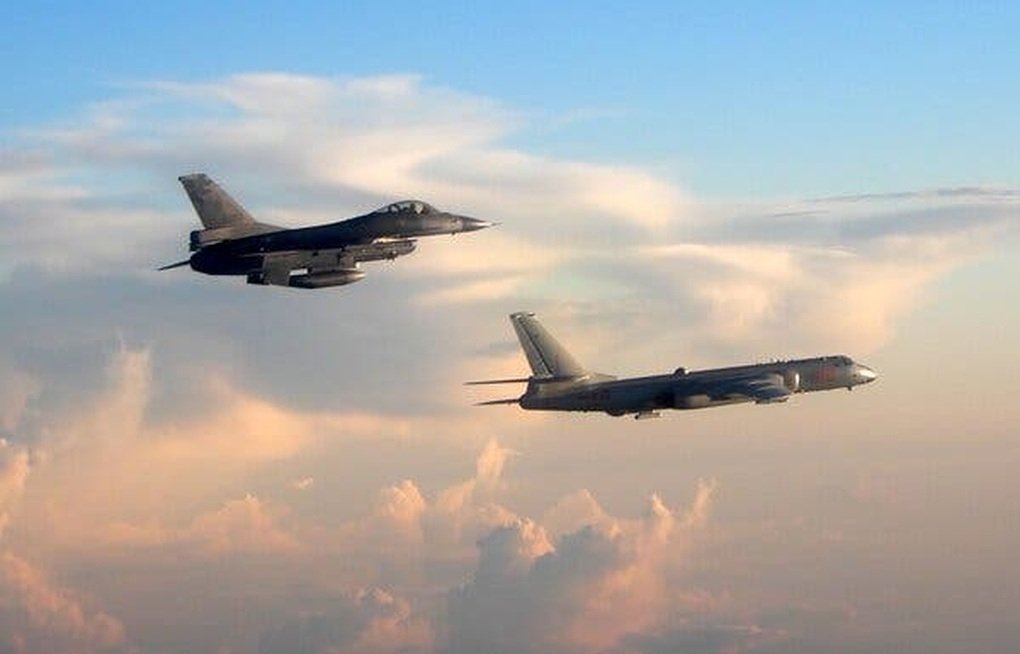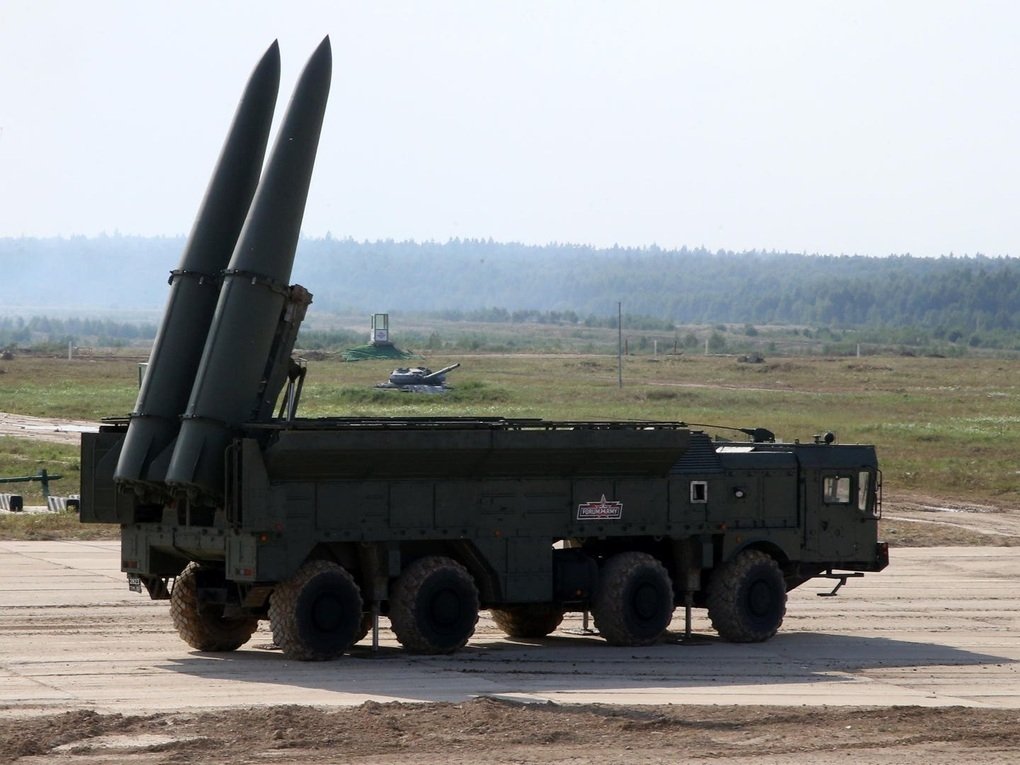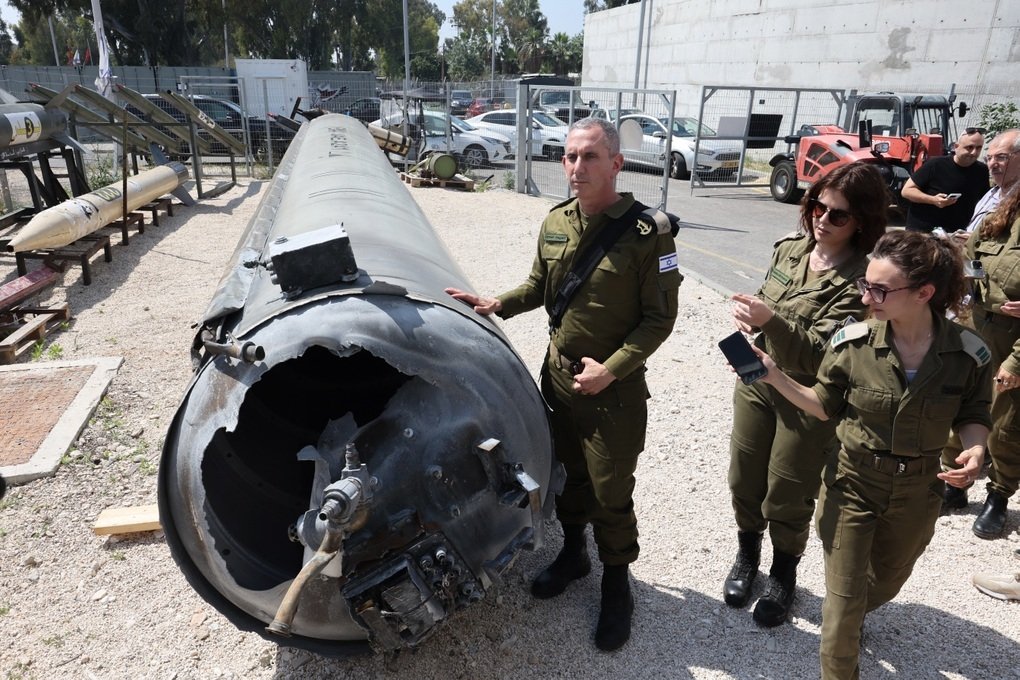(Dan Tri) – US House Speaker Nancy Pelosi’s visit to Asia, including a planned visit to the island of Taiwan, is casting a shadow on US-China relations, which have been continuously tense over the past few years.
Taiwan’s F-16 fighter jet tracked a Chinese H-6 bomber flying over the Bashi Channel, south of Taiwan, in 2018 (Photo: Getty).
Chinese President Xi Jinping has long vowed to `respond to any challenge to the claim of sovereignty over the island of Taiwan`, but the current problem is that Beijing is facing difficult times.
After Beijing’s last major confrontation with Washington over Taiwan (1995-1996), Mr. Xi was then an official in Fujian province, the area opposite the island of Taiwan, and often attracted
Mr. Xi then became the highest political officer of a reserve air defense division of the Chinese army (PLA) in this province in 1996, after becoming deputy secretary of the provincial Party Committee.
At that time, in the event known as the `third Taiwan Strait crisis`, conflict was about to explode.
With a tough stance on the island, Mr. Xi long ago learned how to deal with this problem before becoming China’s top leader.
Clearly, the island’s ability to host a US House of Representatives speaker for the first time in 25 years caused China to react harshly.
China’s Foreign Ministry has warned Ms. Pelosi of `serious consequences` if she goes to Taiwan, and the Chinese military has issued warnings about its readiness to defend national sovereignty with force.
In his most recent phone call with President Joe Biden, President Xi Jinping also warned `America not to play with fire` on the Taiwan issue.
But the problem is that China is also facing a difficult economic and political moment, so it is expected not to let the crisis in Taiwan escalate out of control.
`Will not get out of control`?
Now, Ms. Pelosi’s planned visit to the island of Taiwan could be an even bigger test for Beijing.
`There will definitely be a very strong reaction, but any reaction will not be out of control,` said Professor Chen Dingding of Jinan University in southern China.
Mr. David Gitter, President of the Center for Advanced China Studies, a non-profit research institute, said: `Beijing’s warning is at a medium level, not a high-level warning signaling war risks.`
Beijing has had military operations every time US officials have come to Taiwan and this time is no exception.
In the context of Mrs. Pelosi’s visit to Asia, on July 30, China conducted a live-fire exercise off the coast of Fujian province, 120km from the coast of Taiwan, although the official US announcement did not mention this.
On August 1, the 95th anniversary of the founding of the Chinese army, military media released many statements about protecting sovereignty, as well as videos of China’s Dongfeng-17 ballistic missile.
In an editorial on August 1, People’s Daily praised the modernization efforts of the Chinese military over the years, saying that a `strong army` is part of a great nation that can ensure
Also on August 1, Chinese Foreign Ministry spokesman Zhao Lijian warned that Ms. Pelosi’s visit to Taiwan was an act of `crude interference in China’s internal affairs.`
But for now, at least, China’s major mainstream newspapers have not published editorials about Ms. Pelosi’s visit.
When asked what Beijing’s response would be, Chinese Foreign Ministry spokesman Zhao Lijian said `the world will wait and see`.
Mr. Bonnie S. Glaser, Director of the Asia Program at the US Marshall Fund, said that President Xi Jinping does not seem to want to cause a crisis.
Lessons from the 1995-1996 crisis
During the Taiwan crisis in 1995-1996, China held military exercises off the coast of Taiwan, culminating in the US sending the Nimitz aircraft carrier strike group to the strait in December 1995.
Beijing was angry after President Bill Clinton’s administration allowed Taiwanese leader Lee Teng-hui to visit the US, and Chinese leaders launched missiles into an area about 160km north of the island of Taiwan.
Things later cooled down when the parties de-escalated tensions, ending the `third Taiwan Strait crisis`, but this issue is still a point of tension in US-China relations.
This time, although Mrs. Pelosi canceled her visit to Taiwan and everything passed, many experts believe that rising tensions over the island’s future make conflict increasingly likely in the coming years.
Mr. Xi has set the goal of reunifying Taiwan as a guide for China’s `national rejuvenation` toward a modern, unified superpower.


